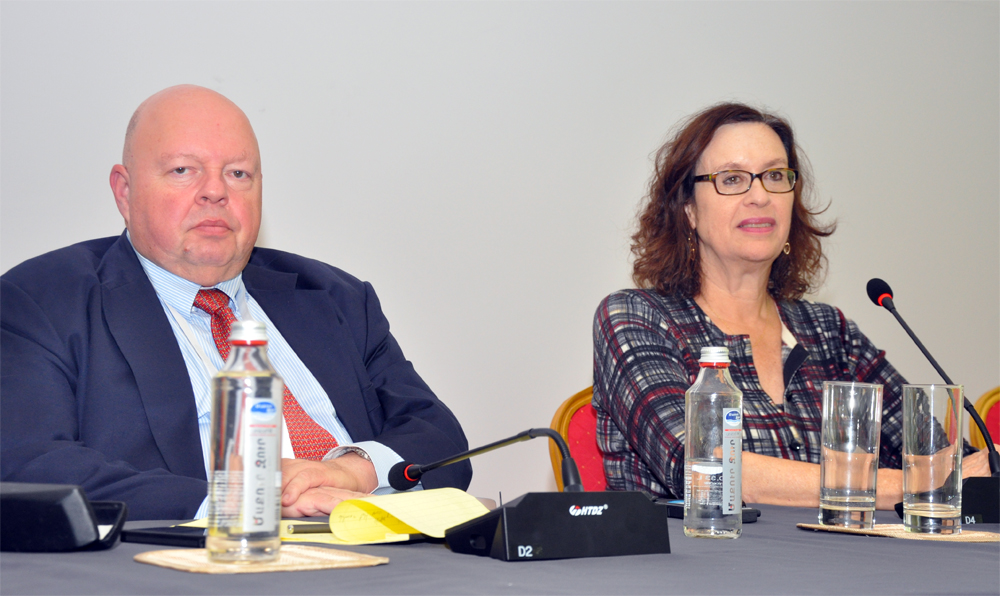Ethics Commission places emphasis on Corporate Social Responsibility

ABOVE: Ethics Commission President Cecilia Gardner (right) and Ethics Commission Vice President Udi Sheintal.
OCTOBER 27, 2016
CIBJO’s Ethics Commission President Cecilia Gardner began the session by reviewing the Corporate Social Responsibility (CSR) course, developed by CIBJO together with Branded Trust of Australia. The course is now available online, and is accessible through the CIBJO website.
“I would urge you to encourage all of your members about thinking about how they can incorporate CSR in their business activities,” she said. “The course is in six parts of approximately 40 minutes each and there is a nominal fee. I assure you it is time well spent. Promote it to your association members, as it is very much targeted at people who are engaged in aspects of the jewellery business. It is a very basic course, and a good starting point.”
The next issue on the agenda was The Jewellery Industry Summit 2016, which took place in New York City in March and which Ms. Gardner was a key organiser. “CIBJO was very much involved in it and was one of the sponsors. It was an open forum for discussing sustainability in the jewellery business. It looked to create broad based awareness and activities that can bring about supply-chain guiding principles, relating to sustainability. Industry professionals also set up workshops and it was a very dynamic and interactive event,” she explained.
The Jewellery Industry Summit aimed to identify strengths and opportunities for the jewellery trade to sustain and improve its supply chain, and also envisioned how the industry will look in 20 years if all players engage in responsible business practises. It also considered specific actions that could be taken in the short and long terms, Ms. Gardner told the meeting.
The second summit is due to take place in Tucson, Arizona, next year immediately preceding the AGTA Gem Fair.
The issue of synthetic diamonds was discussed. There is heightened concern regarding the disclosure of such stones, Ms. Gardner said. “I have been asked repeatedly as General Counsel of the Jewelers Vigilance Committee (JVC) if a general reassurance from suppliers regarding such goods is sufficient in law for a retailer if he sells items which are then discovered to have synthetic diamonds set in them,” she stated. “I give the same answer that I have been giving for the past 18 years – no. The only protection is to engage in a quality assurance program. Synthetics are still a small part of the market, but they are increasing and this issue is being addressed by all the international diamond organisations.”
She suggested that jewellers take a piece of jewellery apart, check if there are real diamonds set in it and keep a record of their inspections. “You can then tell clients that you have guarantees from suppliers and that you check on a regular basis,” she said.
Ms. Gardner concluded with comments about the Ethics Commission providing information to the U.S. Federal Trade Commission for its guides, about what kind of conduct would be considered as deceptive when trading jewellery in the United States.
